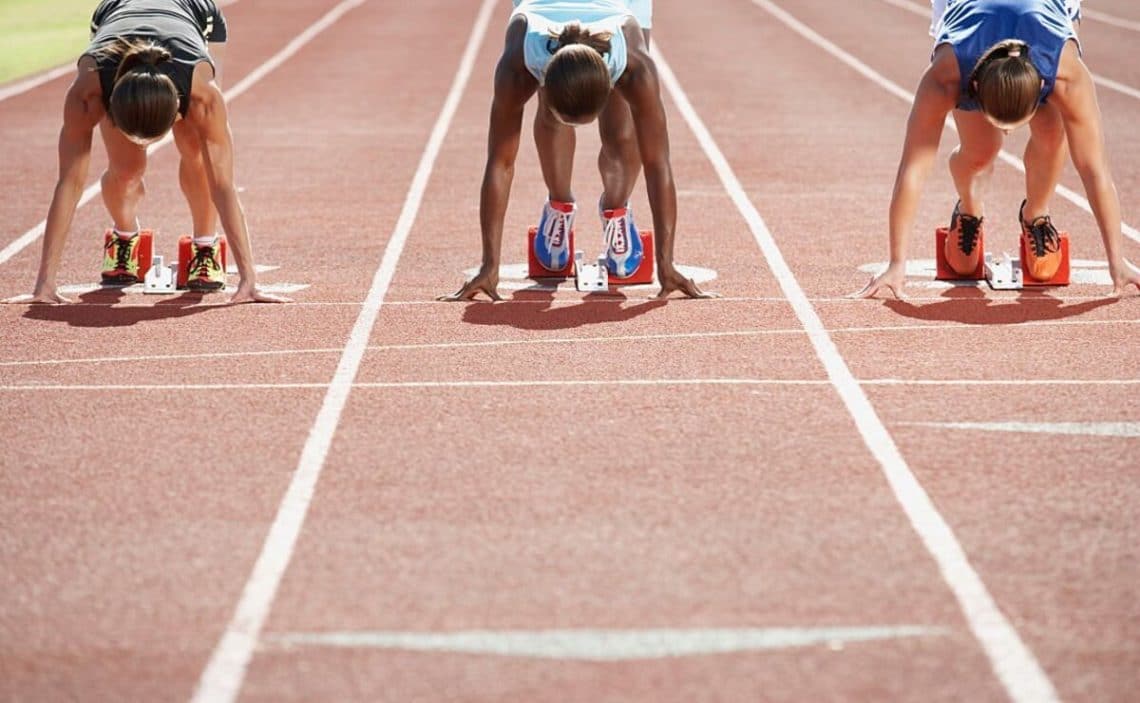Are you ‘absolutely rapid’ like Usain Bolt? Do you have ‘unbelievable tekkers’ like Neymar? Can you hit a cross-court winner like Maria Sharapova? Are you a multi-event maestro like Jessica Ennis? More importantly, do you have the drive, ambition and natural talent to make it to the top of your sport?
If the answer is ‘yes’, you just might have what it takes to become a professional athlete.
Professional athletes make their living by competing in sporting competitions. If you really want to make it as a professional athlete, you will need to compete at the highest level.
In order to do this, you will need to train, train and then train some more! Only a small part of a professional athlete’s time is spent competing – the rest of the time is spent on the training ground or at the gym.
Becoming a professional athlete is more of a lifestyle choice than a career. In order to be successful, you will need to keep your body in peak condition at all times, and you will constantly have to refine and develop your technique. You will need to manage your diet, train every day, and have serious amounts of drive and determination.
You can build a professional career in all kinds of sports, but the main ones in the UK are football, tennis, rugby union, rugby league, cricket, golf, motor racing, boxing, athletics, ice hockey, snooker and basketball.
Professional athletes tend to work alongside a dedicated team of professionals in their hunt for glory, including teammates (if applicable), trainers, coaches, managers, nutritionists, physiologists and psychologists.
Salary & benefits
Some professional athletes, such as footballers and rugby players, are paid an annual salary. Many athletes, however, simply make money through endorsements, sponsorship, prize money and appearance fees.
Certain sportspeople are paid more handsomely than others, such as footballers, boxers, F1 drivers and tennis players. However, on the whole, professional athletes who perform at the highest level tend to earn a decent living.
The most famous and successful professional athletes can earn millions of pounds a year, but this is very rare.
Working hours
Understandably, this is not an average nine-to-five job. To become a professional athlete, you will need to dedicate your whole life to sport.
You will be required to travel all over the world to compete in sporting events, which may involve working weekends and national holidays from time to time.
Entry
There are no academic requirements for professional athletes. You will simply need natural talent, determination, strength, fitness, technique and self-discipline.
Understandably, the route to the top varies from sport to sport. Your interest in sport, however, will normally start out as a hobby. You will then progress through the amateur ranks before becoming a professional athlete.
Becoming a professional athlete requires sustained commitment to your sport for many years, coupled with an unrelenting desire to be the best.
Training & progression
Training will be a daily occurrence. With the guidance of your coach, you will train almost every day of the year, refining your technique, building your strength, increasing your stamina and working on tactics.
Most professional athletes stick to one sport and focus their efforts on being the best they can possibly be. Indeed, it’s very rare for a professional sportsperson to successfully change sport.
Often, this kind of transition does not end in triumph, a prime example being Dwain Chambers’ foray into the world of American football (after he was banned from athletics for drug offences). He signed with NFL Europa league side, Hamburg Sea Devils, in March 2007. By the end of June 2007, the entire league had closed down. Coincidence? We think not.
The vast majority of professional athletes have short careers—rarely exceeding 20 years. However, this is not always the case, and it depends on the physical demands of the sport you choose to pursue. For example, there are many golfers who are well into their sixties and still play professionally.
After you have stopped competing, you may decide to move into training, coaching, management, sports development, or perhaps even punditry.


